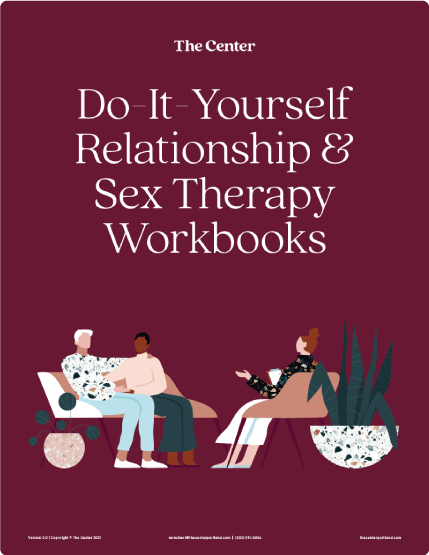People who practice self-compassion make better partners. It’s true!
At first glance, self-compassion seems to be self-serving. But the effects of self-compassion reach far beyond our own happiness. Research shows that higher self-compassion is associated with higher relationship satisfaction.(1)
Why?
Cultivating a more compassionate relationship with oneself is the first step towards creating a more compassionate and understanding relationship with our partners.
When we are constantly putting ourselves down, it’s difficult to be truly present in our interactions with others. We may find ourselves withdrawing from loved ones or becoming defensive when they offer constructive feedback.
Self-compassion is the key to overcoming these harmful patterns of behavior.
Here’s how self-compassion can lead you to happier, healthier, and more connected relationships.
Defining Self-Compassion
First, it’s important to understand what we mean by self-compassion as it’s often confused with similar concepts—like self-confidence.
Self-confidence helps you to feel in control and assured in your abilities. Self-compassion, on the other hand, allows you to be kind towards yourself even when you make mistakes or experience failure. Self-compassion is about accepting ourselves for who we are—flaws and all.
By practicing self-compassion you own up to your mistakes, but don’t let them keep you down. You can validate your emotions, forgive yourself, and move forward.
And when you’re kind and understanding towards yourself, you will be more likely to do the same for others.
Self-Compassion Means Less Self-Focus
So how does self-compassion lead to better relationships?
It sounds counterintuitive, but those who have more self-compassion spend less time thinking about themselves.
When you’re overly critical, you become more self-absorbed. You become laser-focused on your perceived failings and mistakes. This is extremely draining. And it can lead to greater isolation and detachment in a relationship.(1)
However, when you are understanding towards yourself, you become less preoccupied with your own shortcomings. You can shake things off more easily and are less defensive when others offer feedback.
By practicing self-compassion you are not being selfish. On the contrary—you are opening yourself up to greater connection with others.
Self-Compassion Can Lead Greater Wellbeing
When you practice self-compassion you are more likely to feel happy, optimistic, and experience greater wellbeing.
Research also suggests that people with high self-compassion are more motivated to make changes in their lives when they experience struggles.(2) Self-compassionate people are skilled at paying attention to their behavior. And at admitting when they’re engaging in harmful or unhelpful behaviors.
When you’re kind to yourself, you’re more likely to have the motivation to make healthy changes in your life, instead of ruminating over your shortcomings.
You can show up as the person you want to be in your relationships.
You’ll Approach Your Relationships With More Honesty
Communication is the foundation of any healthy relationship. And self-compassionate people are more likely to be honest, both with themselves and others.
Self-compassion creates an environment where we can be authentic and vulnerable without fear of judgment.
We can be more open and honest with our partners when we’re not afraid about how they’ll react to our true feelings. This allows for more open communication between partners, and honest conversations about needs and feelings.
Self-Compassion Supports Connection to Others
When we feel alone, we tend to push others away. However, when we feel connected to others, we are more likely to reach out for support and connection.
Compassionate thoughts help us feel connected to others—rather than feeling isolated by our struggles. Through practicing self-compassion you recognize that mistakes and challenges are a shared human experience. This can help you feel closer and more connected in your relationship with your partner.
You Gain Stronger Coping Skills
We’re better equipped to cope with stress and setbacks in life when we have compassion for ourselves.
When you have a good relationship with yourself, you’ll be less likely to look for validation from others. You become that supportive voice that you need during tough times.
Self-talk like, “It’s okay for me to feel this way,” and “I’m doing the best I can right now” can help us amplify the compassionate voice in our head and build resilience.
When we build our coping skills, we’re better able to handle the challenges that come up in our relationships.
You Become More Accepting Of Others
Self-compassion involves accepting yourself as a human being with imperfections, deserving of kindness and respect.
When you are more accepting of yourself, you are more likely to understand and accept your partner’s humanness and imperfections as well. Just as you wouldn’t have unreasonable expectations of yourself, you refrain from having unreasonable expectations of your partner.
Through practicing self-compassion you learn to value and love your partner for who they are.
How to Enhance Your Self-Compassion
Practicing self-compassion can feel difficult at first (especially the self part!). But it gets easier with time. Try some of these tips to help you start building a more compassionate relationship with yourself.
Be Aware of Your Inner Critic
The first step is to become aware of your inner critic. This is the voice in your head that tells you that you’re not good enough, that you made a mistake, or that you’re worthless. Start paying attention to the way you speak to yourself.
Observe Through Mindfulness
It’s easy to get wrapped up in stories we tell ourselves. Mindfulness develops your awareness of your thoughts and feelings—without judging them.
When you have negative thoughts or feelings, simply notice them, acknowledge what you’re experiencing, but then let them go.
Practice Forgiveness
Forgiving yourself for your mistakes can be difficult, but it’s an important step in building self-compassion. When you forgive yourself, you allow yourself to accept your mistakes, learn from them, and move forward.
Treat Yourself as You Would a Good Friend
How would you approach a friend who’s going through a tough time? You would likely be kind, understanding, and supportive. Treat yourself the same way!
Instead of allowing your inner critic to run rampant, berating you at every turn, try to adopt more helpful thoughts.
Like—”I’m having a tough day, but I’m still doing the best I can,” or “I made a mistake, but I can learn from it.”
Work With a Therapist
If you’re struggling with being kind and understanding towards yourself, you aren’t alone. Speaking with a therapist can be incredibly helpful. Therapy can help you identify and work through the underlying issues that are causing your self-criticism.
And a couples therapist can help you cultivate the skills you need to have a more compassionate relationship with yourself and your partner.
Are you looking for more support in your relationship? Contact us today to learn how we can help.
References:







